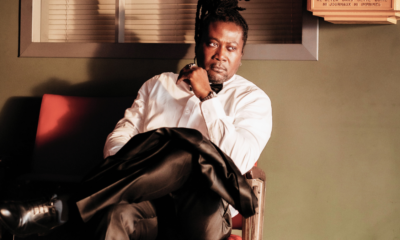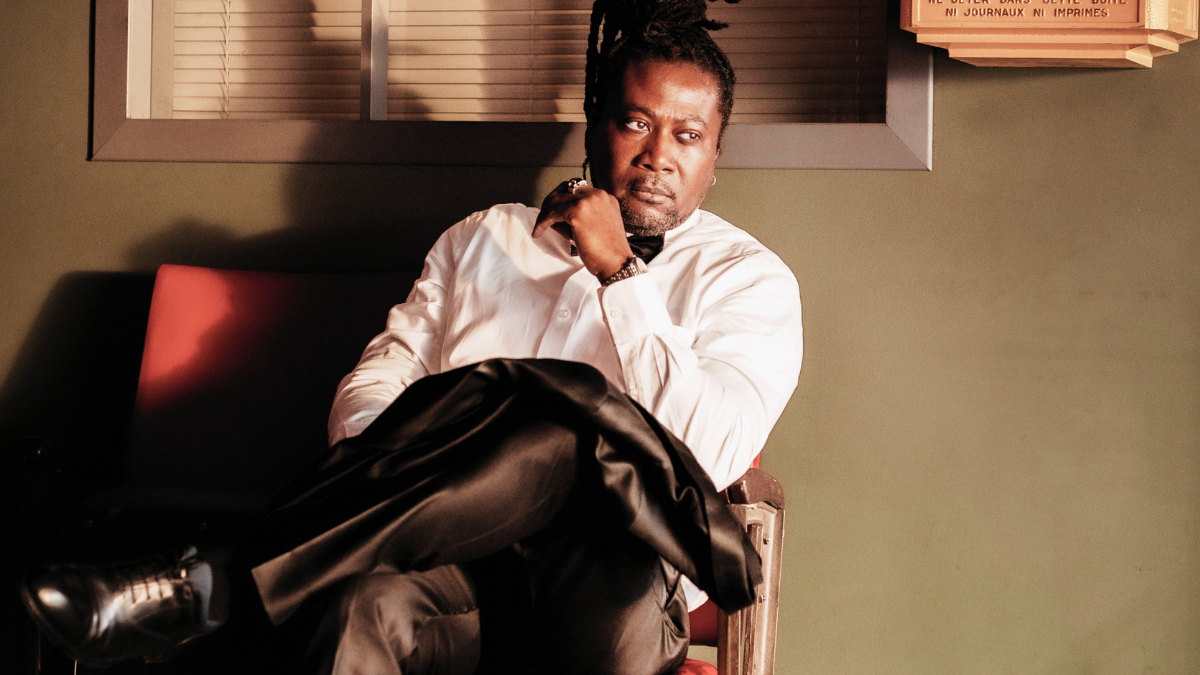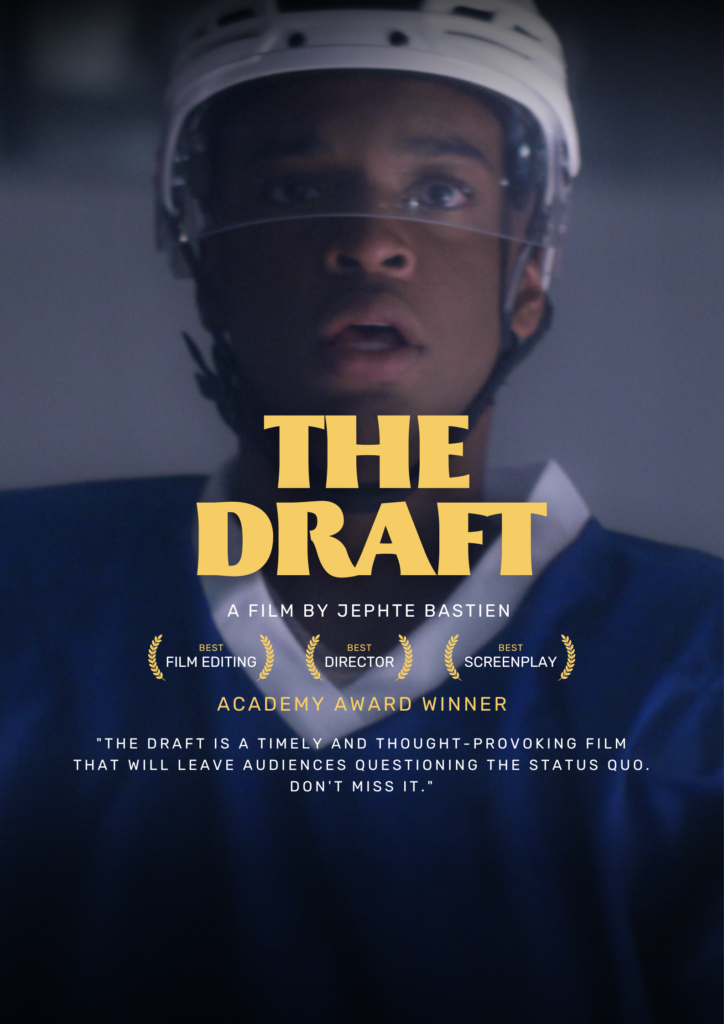TVM: Today I have the pleasure of speaking with Juno award winning triple threat and Canada’s Queen of R&B, Ms Jully Black. Hi Jully, how are you today?
Jully Black: I’m wonderful, how are you?
TVM: I’m fine, thank you! Could you tell us a little bit about your new album and when we can look out for it?
Jully Black: Well, the new album is called, “Made in Canada”, we just changed the name and I’m excited about it. It’s what we call the new Motown sound rivaling my Revival record with the horns, the string section, and it’s very danceable. My producer Young Pete Alexander was raised in Atlanta, so he was able to bring some of the southern flavour to the sounds that I love which are the Etta James and the Tina Turner’s of the world so, we think the timing is fitting for what, you know, Justin Timberlake brought back, or Robin Thicke and Miguel. You know, that r&b/soul is coming back to the mainstream and we’re excited about that because that’s just something that needed to happen because music got really loud on the radio, it’s still pretty loud. To me, when you make timeless music that’s not going to be a trend, you know, here today gone tomorrow, it takes time. It’s been 4 years since my last record so we took time and made this record in Canada, so the title is definitely fitting.
TVM: How would you describe your voice…
Jully Black: Wow, you know, no one’s every asked me that question. In all these years, not this question…um, I would describe my voice as rich, soulful, I think that the texture is unique, I sing with feeling. I hear it in my head and I feel it in my body so it’s hard for me to describe how it resonates to people. Personally, I don’t think that I sound like anybody else and God gave me a tone that I just think resonates with people, so the words that I’m singing people can relate to. I think my voice is just packaged the right way…it’s hard for me to explain, because I’ve never been asked this question before. I just think my voice is more about the purpose behind what I’m saying, you feel it when I’m singing it and I could get technical like I’m an alto, but it’s really about the feeling that I think bounces off of people’s bodies.
TVM: How would you describe your music?
Jully Black: I would describe my music as soulful, it’s flavour, I mean, whatever flavour you want it to be, it is. It appeals to all ages, all nationalities…the beauty of being born and raised in Canada with limited resources, as far as black music is concerned, is that outside of my home I was introduced to a wide variety of various genres of music and at home it was reggae, gospel, and r&b, so all of my influences are in my music and I think that makes it so relatable and something that everybody can appreciate.
TVM: At what age did you discover your passion?
Jully Black: I discovered my passion for music at 6 years old in church.
TVM: Wow, that’s young.
Jully Black: Yeah, I mean it was kind of that question of purpose, what am I meant to do on earth and I think, once you realize what the one this is that you would do for free is and kind of hone in on that and for me, I realized that at 6.
TVM: You’re quite the accomplished songwriter, what moves to write songs and is there a particular song that you feel most proud of?
Jully Black: Oh, good question. Well, I’m very observant as to what is going on in the world and in my very own world. Most of my songs are very personal and a lot of them are also experiences of my friends and family so a lot of times my family is like, aw great, she’s gonna write a song about us…be careful. So yeah, that’s basically the process of where my songs come from. There was a B part to that question…
TVM: Yes, I wanted to know whether there is a particular song you’ve written that resonates with you.
Jully Black: Oh that’s so beautiful that resonates to me. Right now, it’s not released yet, there’s a song on Made In Canada called, “The Moment,” and it’s the most beautiful, truthful love song and the lyrics are so profound. Just the perfect modern day Romeo and Juliet story, you know? One of the lyrics is, “if love is our pen, we’ll write in the stars and heaven will show it” so beautiful! I love that song. It’s only a piano and my voice.
TVM: So your voice is really prominent and it’s all about your voice?
Jully Black: Yeah, no extra stuff. It kind of channels Adele’s song “Someone Like You” you heard her voice on that song and you couldn’t help but just stop and pay attention.
TVM: Right. Are there any challenges being a solo artist versus being in a group?
Jully Black: I was in a group years ago, like in 1994, it was a short lived group but still, nevertheless, I was in a group. The challenge was being in a group because I was born to be a solo artist, I started singing by myself at 6 and often times people don’t have the same vision or even the same passion. I eat, sleep, breathe, bathe, everything music and so, you need people around you who have that exact same headspace. Interestingly enough, I need the same thing with my producers, my management, same thing with my band and my glam squad. The people around me have been with me for several years so I’ve realized the necessity of like-mindedness. I mean, it takes a village but you need to determine who is responsible for what task and, more importantly, who is the leader;
TVM: Earlier, you briefly spoke about various musical influences, could you elaborate? Are there any specific people who influence you vocally?
Jully Black: Oh absolutely. I’ll throwback to Tina Turner, love love love Tina Turner. Throwback to Etta James…I actually got to open for her at the Ottawa Blues Fest and this was years before I even did (the song) “Seven Day Fool,” I didn’t even know that she had that song, “Seven Day Fool” until years later because that song was a ‘B-side’ it wasn’t a single of hers. Everyone knows “At Last” and the like but this little gem was sitting on this compilation and I discovered it, so she’s always been an influence, rest in peace. Whitney Houston was the very first artist I could listen to, I was raised in the church and her song was the very first song I was allowed to sing. You know, when you’re raised religious, there are certain songs….secular music you aren’t allowed but this music was passable (laughs)! When I got older, there was Madonna, there was Cyndi Lauper, who played a big role, I used to listen to “True Colours´ all of the time. My musical pallet is very broad, I was raised listening to Blue Rodeo on the radio, so when I met Jim Cuddy, he became a mentor of mine.
TVM: Wow, that’s amazing, I didn’t know that.
Jully Black:Yeah, absolutely. That’s actually why I’m so excited that we renamed the album Made In Canada because there is a lot of things that have happened over the past 20 years, I started, professionally, since I was 15 years old, so, there’s a lot of musical influences as far as Canadian ones but the main ones would be The Blue Rodeo’s of the world, and when I got to high school it was Alanis Morissette, oh man! (Laughs), yeah, I’m a little rocker on the inside!
TVM: It’s really interesting that you have such a diverse collection of music that you listen to. What is your overall vocal regime?
Jully Black: Well, last year, I suffered a vocal hemorrhage…
TVM: Oh my gosh.
Jully Black:Yeah. I almost lost my voice forever, it was just last April, a little over a year ago. Before then, I took my voice for granted, I didn’t train from the time I began singing at such a young age and it just was something that was given to me at a young age and I didn’t realize that I had to care for it and have specific diets, etc. But all of these years, it took that happening and so, I do have a specific regimen. I have to stop eating 3-5 hours before I hit the stage, lots of teas but specific ones like Camomile, because it’s a relaxant, as you know; people drink it before bed, it helps to relax your anxieties and such before you hit the stage. I stay away from spice, citrus, tomatoes, anything tangy or with acidity, I’m also Episcopal Presbyterian so I don’t eat any chicken or beef I eat fish and veggies. I work out a lot, there’s non-show day exercises and show day exercises, I don’t lift weights on show days because you’re putting pressure on your neck. So yeah, I mean, I could do a whole rant on my vocal regiment. Six water a day, no matter what, hydration because we’re made up of mostly water, um 8-9 hrs of
sleep, especially pre show days…lots of stuff (laughs)!
TVM: (laughs).
Jully Black: Because you know why Nana, it’s like, if you think about athletes, Michael Jordan, LeBron James, etc, there are things that athletes have to do to be the best. So last year is when I locked into the fact that I’m a vocal athlete and that’s why the greats who are still doing it, 60 or 70 years later…you know, when I think about the ones who have just passed recently, you know like the James Browns or whomever, they stood the test of time and they actually did party and rock ‘n’ roll and all of that. But, there’s a certain level of discipline needed to be great.
TVM: Well said. When would you say that you’re at your vocal best (morning, afternoon, or evening)?
Jully Black:Oh no chile, I’m Barry White in the morning, Jully Black in the afternoon.
TVM: (Laughs).
Jully Black: I’m telling you, morning shows are tough. If I have to sing at Breakfast Television or Canada Am, etc I got get up, have my breakfast and be warmed up by 4am for an 8 or 9am performance. It’s tough. Think about anybody who gets up in the morning, it’s crazy, I mean we sound crazy, then, imagine having to sing. I can still make my voice sound great in the morning, it just takes work.
TVM: I see. Is there a difference for you vocally between performing in the studio and performing live? Which do you prefer?
Jully Black: There’s a big difference but now, I actually enjoy them both equally, I used to focus my love on the live shows. The cool thing about the live show is, you get one shot; there’s no re-dos. You gotta be dead on, you know what I mean? If you miss something, there’s no time to blame yourself, you gotta keep it moving. It’s really about living with the now with the live show. I just recorded a new song last night called “Oneway” and it’s awesome to hear note one to a completed song; all the colours and all the harmonies…it’s like being a sculptor because you put this piece together and there’s this gratifying feeling afterwards…you know, two/three hours later when there was nothing before and now there’s an entire song.
TVM What is your aim when you perform? And what do you want your fans to take from your performance?
Jully Black: Well my formal goal is to make a connection period and I treat the audience as if it’s just me and one other person. It doesn’t matter if it’s 10 people or 10,000, you get my full energy. I am of the mindset that I owe my audience my best, they don’t owe me anything at all, I have to earn their applause. I want them to leave feeling good and feeling inspired. At the end of the day, let me put it this way, the way you came into the show will not be the same way you leave the show.
TVM: Okay. You have an amazing presence on stage and also in front of the camera. Where do you get that from?
Jully Black:: Oh wow…well thank-you for that compliment. Um, where do I get my confidence? I would say God, to be honest with you, I really feel that, the reality is there is only one of each of us and I think that too often we aspire to be like what we see on tv, in magazines, etc. I mean it’s good to have goals and be inspired by people but at my height it was hard. When you’re 5’10, I’ve been that height since I was 10 years old; I’ve always been really tall for my age. It was either going to be that I had 15 issues with my height or I’m going to lock into my family so, my mom let me know at a very young age that I’m special, I’m beautiful, tall is great, you know? God made you that way for a specific reason. I think those values just transferred over into adulthood.
TVM: Do you find what you eat affects your voice?
Jully Black: Yes, what I eat totally affects my voice so I have to plan. I really follow my food, I just watch when I want to have, for example, spice. I’m not going to be a prisoner of my voice, I just plan it all. I know if I have a show that day, I make sure I over hydrate and enjoy!
TVM: That’s cool. How have your vocal practices changed since you first began recording and performing?
Jully Black: Now, with technology, it’s a lot easier because I have apps on my phone…there’s something called Vocal Tool Kit that I use, not to mention, I started seeing a speech pathologist and I recorded my sessions so I can do my trills/exercises on the go. I was doing it wrong before, I thought I had to do them for at least 30 minutes but she was like, no, 10 minutes is all you need and let your voice relax…you always learn something new.
TVM What is a typical rehearsal like for you?
Jully Black: Between 4 and 6 hrs. For a couple hours, it’s just the band getting the music in order and if I’m there…the band says that I have dog ears, I hear every incorrect note…
TVM: (Laughs), oh no!
Jully Black: My ears are just incredible and I think, growing up in high school, I couldn’t and still can’t sight read, so I trained my ear to keep up and now they’re just super razor sharp (laughs). Then vocalists will come in, the background singers and then we just rock the rehearsal like it’s a performance.
TVM: Okay. Describe a challenge you constantly face, in those practices.
“I would describe my voice as rich, soulful… I sing with feeling. I hear it in my head and I feel it in my body…”
Jully Black: Um, I don’t face any challenges. The reason why I don’t face challenges is because of the way I think. If something is challenging, I don’t look at it as a challenge. I just look at it as something that I need to take time to work on. It’s all about the way you think.
TVM: Do you feel a connection between physical workouts and vocal workouts?
Jully Black: Vocally working out is a lot tougher because your vocal cords are as thin as the tip of your finger nails so you’ve got to be very mindful of how much time you put into it and that you have to build up to it. I can’t just blare up my voice, you know what I mean? I really have to know and feel if my voice is ready. I’m even gonna have to take a beat after this (interview), speaking for long periods of time is actually harder than singing.
TVM: Wow, I didn’t know that, really interesting to learn. How regularly do you workout your voice?
Jully Black:I’m supposed to do it every day and I’m still not disciplined. I do include it into my day though. I run into the shower steamy so instead of putting the steam machine on my face, I make the washroom very steamy and use that as my steam time. I try to just do things that don’t make it so much of a routine cause with routines I get bored. That’s just me being a brat because I’ve been singing so long without having to do it. So yeah, I should work it out more on the daily but I do sing everyday.
TVM: What do you like about that voice you sing with everyday?
Jully Black: Um, I like that it’s readily available, I like that it’s mine. That’s question I’d prefer other people to answer.
TVM: Well okay, makes sense I guess. What do you feel differentiates you from other vocalists?
Jully Black: I would say my tone. I’m more of a tone girl than a vocal acrobat. I don’t do lots of voice tricks. A lot of the American girls, they do a lot with their voices which is beautiful but I realize my voice is about how I hold a note and my tone. You’ll know a Jully Black tone more than my (vocal) acrobatics.
TVM: Right. Today’s music industry is extremely competitive, what do you think it takes to pursue singing as a career?
Jully Black: It really just takes passion, that’s it. Nothing’s changed from back in the day, I think that was has changed is that people want the quick fix. They want it yesterday instead of working for it. There have been examples of overnight success, so people coming up think that that’s the way it should be for everybody.
TVM: For individuals who want to be vocalists, what advice would you give them?
Jully Black: First of all, I would ask them why? Why, do you want to be a vocalist and if it has anything to do with being a superstar, I think they should reconsider.
TVM: Well, why did you want to be a vocalist?
Jully Black: I realized at 6 years old that it was a language and a voice, no pun intended, but God gave me an additional voice to reach people and music is something that is the universal language so being able to communicate with melody, I have been able to reach way more people than I would if I was a politician.
TVM: Well anything could happen…where would you like to be in your career, 5 years from now?
Jully Black: I would like to have international success where I’m able to influence change. Like, one of my goals is to be the influence for those who do not have influence. There are people in the world whom will never have their voices heard, but if they subscribe to the messages that I put out, then I can be the influence for both of us.
TVM: Well alright then. Thanks so much for speaking with The Vocalist today Jully, it was a pleasure and I wish you more success in the future.
Jully Black: No problem. Thank you.


 Business3 years ago
Business3 years ago
 Business2 years ago
Business2 years ago
 Business2 years ago
Business2 years ago
 Business3 years ago
Business3 years ago
 Business3 years ago
Business3 years ago
 Business3 years ago
Business3 years ago
 Business3 years ago
Business3 years ago
 Business3 years ago
Business3 years ago






































